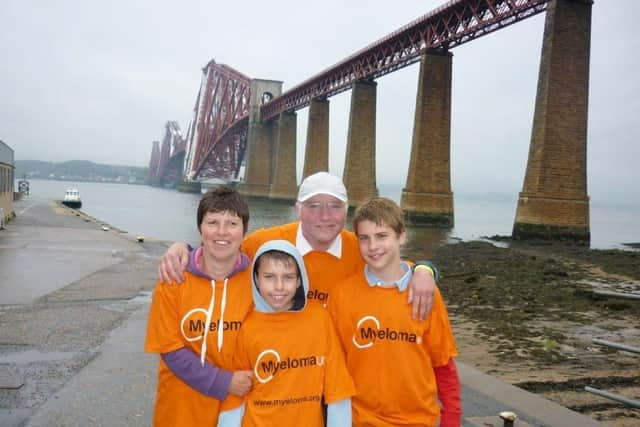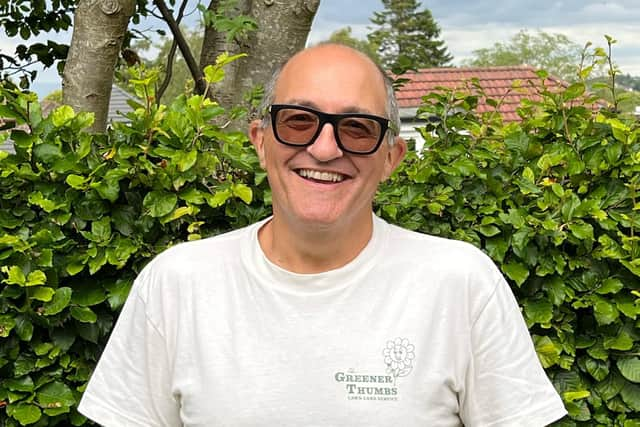Myeloma: Scots diagnosed with 'death sentence' blood cancer praise medical breakthroughs
Nick Black, 56, from Glasgow, and Richard Spencer, 66, from Currie, are both affected by the incurable blood cancer myeloma, which affects 2,000 people in Scotland and 24,000 UK-wide.
Mr Black’s cancer story started in 2013, when he put his back out on a dance floor in Glasgow. Despite the attendance of physios and doctors, the pain only grew over the next six months and, after a blood test, he was diagnosed with myeloma in February 2014.
Advertisement
Hide AdAdvertisement
Hide Ad“At the time we had young children – we were completely blown away by this,” said the father-of-three.


“Getting a diagnosis of cancer, that awful six-letter word … you have this notion when you hear it’s incurable that you’re going to die in six months.
“It was a real blow to us as a family, but we pulled together pretty successfully. But living with myeloma comes with a lot of challenges, not only for patients, but for their family.
“After a while I contacted the charity Myeloma UK, and speaking to them helped get our heads round it. Explaining to your kids what’s going on has been one of the hardest things.”
Mr Spencer’s story, which began in 2006, started in similar fashion, with an unidentified pain in his hip. An X-ray revealed a plasmacytoma tumour, a rare complication of myeloma, and Mr Spencer was diagnosed in 2007.


“I had never heard of it,” he said. “It was a total mystery.
“Everything collapsed. It was a horrendous time, but we ploughed on.”
Despite his diagnosis, Mr Spencer threw himself headfirst into fundraising. In 2009, he abseiled down the Forth Road Bridge and in 2015 he did a skydive, raising around £5,000 for myeloma research.
Advertisement
Hide AdAdvertisement
Hide Ad“When people hear they have myeloma, they think they have to plan for their demise,” said the father-of-two.


“I thought it was worth helping other people who are in the same situation I was and tell them you can come through it, raise children and live as normal a life as you can.”
When the Edinburgh-based charity Myeloma UK first opened its doors in 1997, Myeloma was a death sentence. There was no treatment, and patients’ life expectancy was 12 to 24 months. Today, there are 12 treatments available.
Myeloma UK is now celebrating 25 years of helping patients. Myeloma UK chief executive Dr Sophie Castell said: “When Myeloma UK first launched, the outlook was very bleak for patients.
“But today the average life expectancy has quadrupled. There are 12 treatments currently available on the NHS, and more in the pipeline, and we’ve invested £19 million into research, including life-changing clinical trials for new drugs, which we hope will one day lead to a cure.


“Our goal is to make sure patients can live a full life and we’re working towards this every day.”
Mr Black added: “When I was first diagnosed, when I asked the dreaded question – ‘how long?’ – they said you can expect ten years, but now there’s none of that.
“They don’t talk about end-of-life scenarios..”
Comments
Want to join the conversation? Please or to comment on this article.